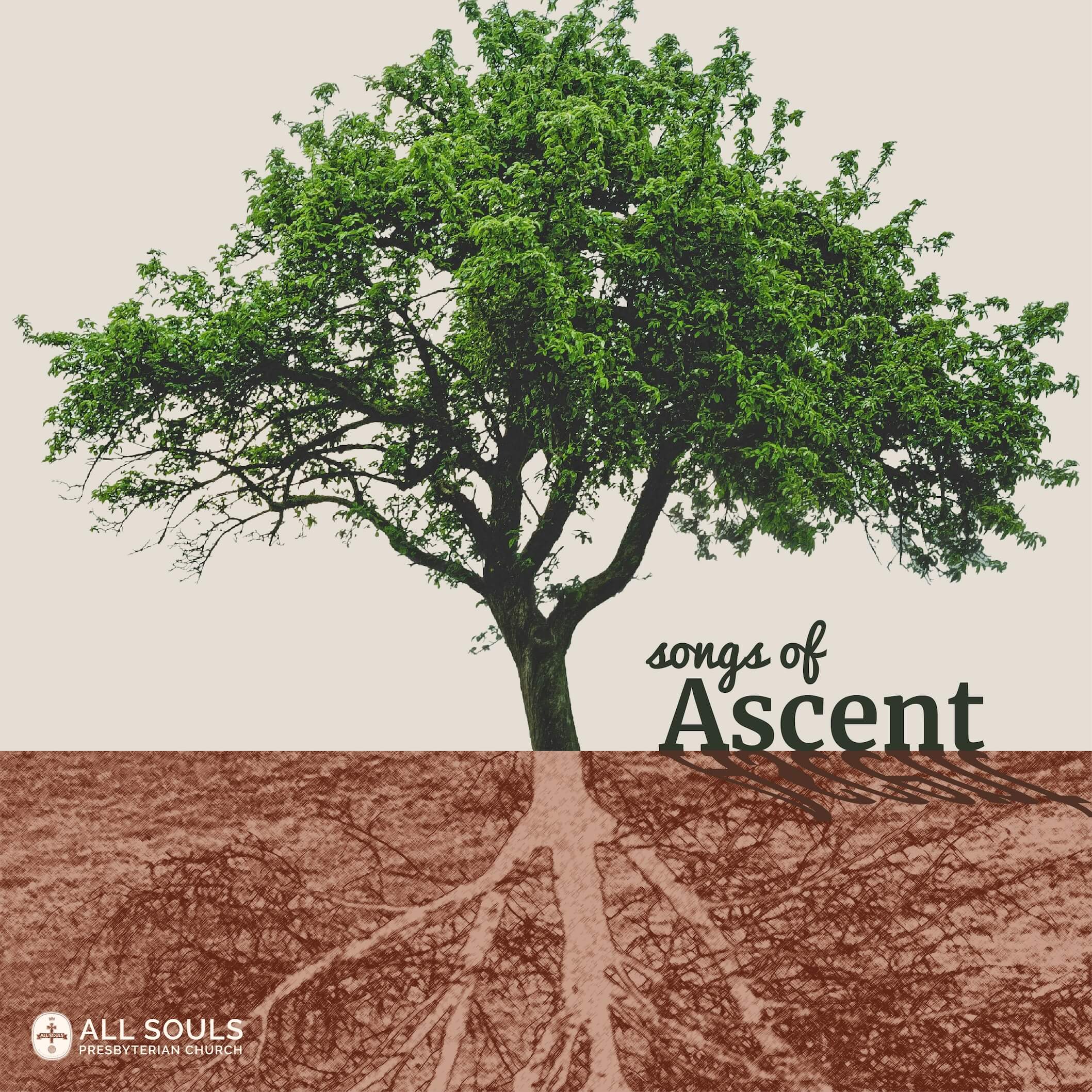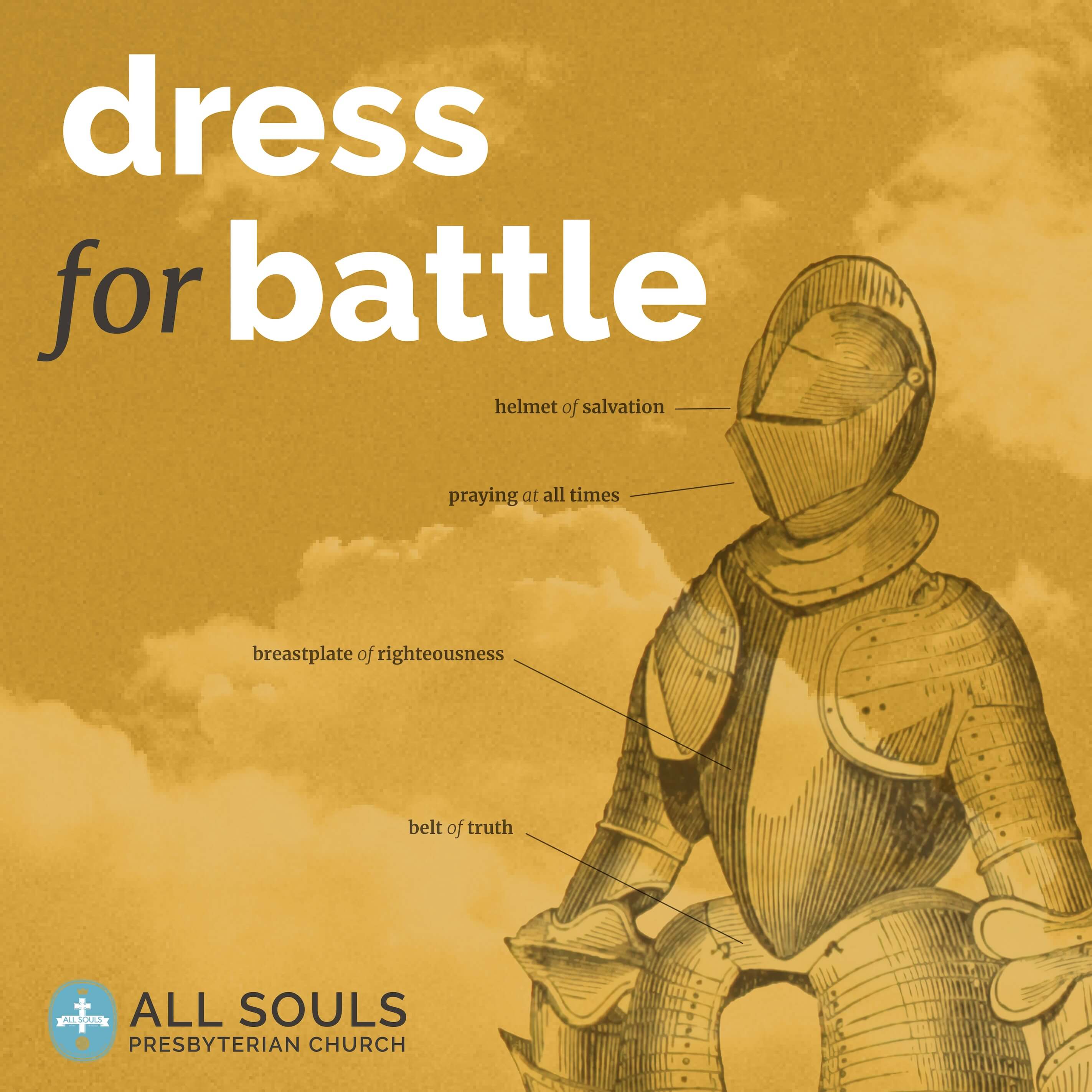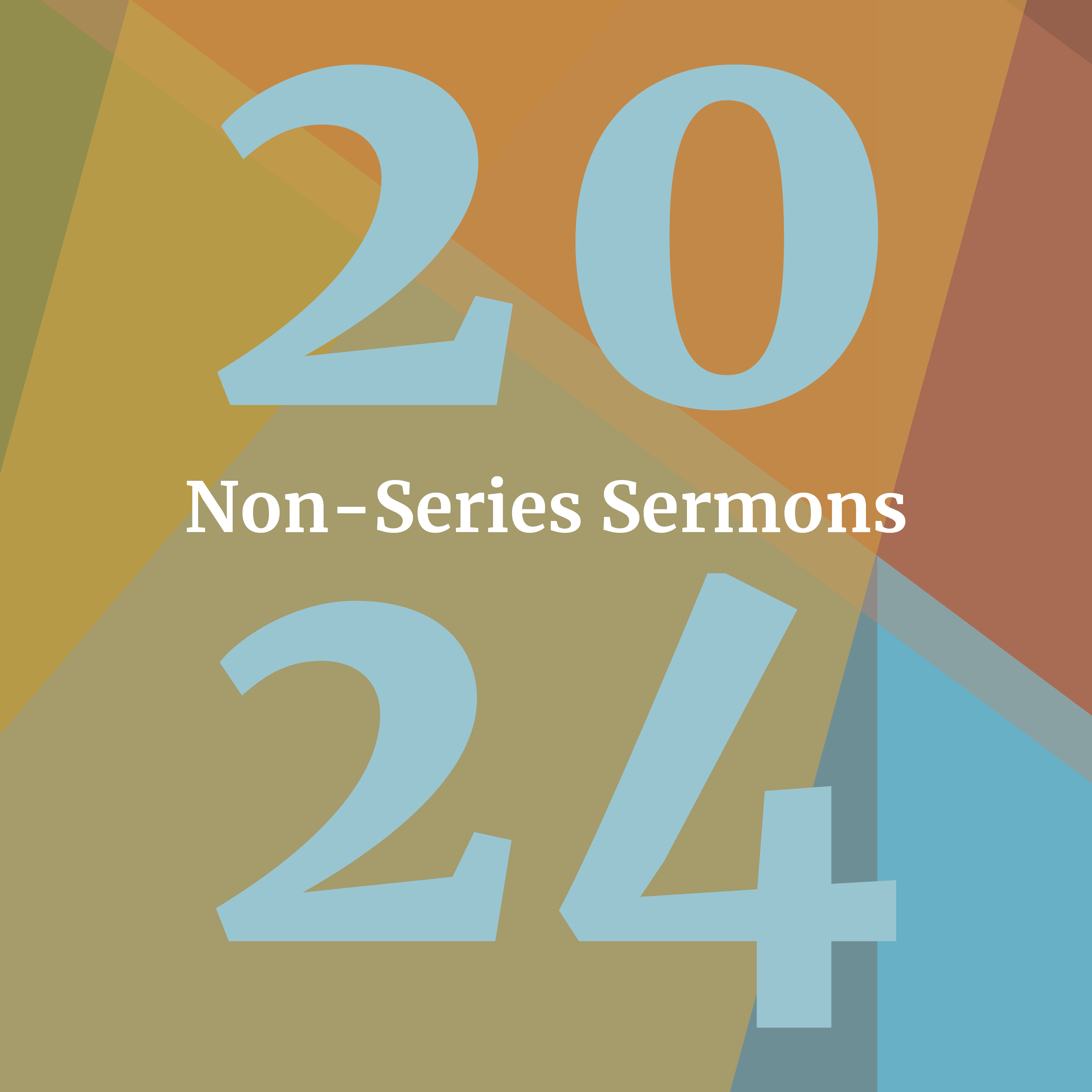Recent Sermons
View our most recent sermons below. You can also view all sermons sorted by sermon series or
by Scripture passage.



Living for the Will of God
1 Peter 4:1–6 • Pastor Josué Pernillo
Feeling like an outsider is a strange and uncomfortable thing. You can feel like an outsider anywhere, be it in church, at... your job, with your family. In the book of 1 Peter, Peter refers to Christians as sojourners. We, as Christians, are ones who are on the outside looking in. We are in the world, but not of it. 1 Peter 4:1–6 begins a culmination of a theme that has been woven throughout the book on what it means to live as Christians and as sojourners, now specifically addressing the reality that Christians will face rejection in this world. Listen as Pastor Josué Pernillo preaches on this passage, explaining that we are called to reject sin, showing how this rejection of sin leads to our rejection in the world, but how it is also tied with our final vindication in God in the age to come.
God’s Providence
Psalm 127 • Jamie Chesser
Writing of Psalm 127 Derek Kidner says, “One of the most telling features of this short poem is that it singles... out three of our most universal preoccupations—building, security, raising a family—and makes us ask what they all amount to and to whom we owe them.” Rather than looking at the psalm according to these three common preoccupations, church elder Jamie Chesser proposes we look at it instead in two parts in order to reveal something about God’s providence. Listen as Jamie teaches on this passage, looking first at the warnings giving about our striving, when done apart from God, and then looking, in contrast, at God’s perfect provision.
The Victorious Christ
1 Peter 3:18–22 • Pastor Ethan Brown
Martin Luther once referred to a particular portion of 1 Peter 3 as “a wonderful... text...and a more obscure passage perhaps than any other in the New Testament.” Listen as RUF campus minister Ethan Brown preaches on 1 Peter 3:18–22, helping us to grow in our understanding of this difficult passage and to experience more deeply the good news about Jesus. Pastor Ethan divides this text into three primary sections: The Good Word (18), The Ancient Word (19–20), and The Visible Word (21–22).
A Righteous Community
1 Peter 3:8–17 • Todd Doehring
In 1 Peter 3, the apostle Peter moves from a focus on the inward lives of believers and the way believers interact within... specific relationships, to an outward focus on how we as Christians should engage with our community and those around us. We are to be a righteous community, not because of anything we have done, but because of who we are. Listen as church elder Todd Doehring teaches on 1 Peter 3:8–17, showing in three points how to live in this righteous community: be good, do good, and suffer well.
Gospel-Shaped Marriage
1 Peter 3:1–7 • Pastor Ethan Brown
RUF campus minister Ethan Brown preaches on 1 Peter 3:1–7, showing us the beauty... of powerful submission and gentle headship within a gospel-shaped marriage.
Freedom in Christ
1 Peter 2:13–25 • Pastor Josué Pernillo
Pastor Josué Pernillo preaches on 1 Peter 2:13–25, showing that the freedom... we need is freedom in Christ; that we are freed from the bondage of sin; and that we are free to serve others.
As We Come to Him, Jesus Our Cornerstone
1 Peter 2:4–12 • Aaron Chun
Guest speaker Aaron Chun continues our summer series on 1 Peter, preaching from 1 Peter 2:4–12 with... three points: Offer Spiritual Sacrifices, Proclaim His Excellencies, and Live a Life of Holiness.
Who Do You Turn to for Help?
Psalm 121 • Scott Morrison
Church elder Scott Morrison kicks off a new evening service summer series on some of the Songs of Ascent, preaching on ... Psalm 121, addressing the questions: Who helps you? Who keeps you? And who protects you?
The Good News Preached
1 Peter 2:1–3 • Pastor Josué Pernillo
What happens if you think you know where you’re going, but then you discover that you don’t know how to get there? That’s hard enough when traveling... on the road, but what happens when it occurs in life? What do you do when deep sorrows or unexpected circumstances overwhelm you, and you thought you were going the right direction but suddenly find yourself on a back trail that you didn’t expect? Where do we find our direction? In the book of 1 Peter, Peter writes to pilgrims, to sojourners, to people on a journey. To those who would face various trials and difficulties and challenges along the way, Peter reminds them of their need for wisdom and direction and he points them to the word of God. Listen as Pastor Josué Pernillo preaches on 1 Peter 2:1–3, showing that we, too, are pilgrims on a journey, but because of the gospel and because of the word of God we have everything that we need for the journey in life and godliness. God has provided for our journey by providing his Word: the Word that cleanses and the Word that matures.
A Call to Action
1 Peter 1:13–25 • David Thies
Ruling Elder David Thies continues our 1 Peter series with a sermon on 1 Peter 1:13–25, addressing... three questions: “What action?”, “Why the action?”, and “How the action?”
Our Living Hope
1 Peter 1:3–12 • Pastor Josué Pernillo
Why is it that long trips are so tiring? Even with the advances and efficiency of modern travel, there is still a basic weariness... that can come from a long journey, a long drive, a long flight. Similarly, there is a weariness that can come from facing weeks, months, or even years of troubles and difficulties in life. How can we endure? In the book of 1 Peter, the apostle Peter offers help for pilgrims who are weary on their journey by addressing the hope they have in the future, the strength they have in the present, and the story, throughout history, in which they are included. Listen as Pastor Josué Pernillo preaches on 1 Peter 1:3–12, showing that as Christians we are empowered for our journey because Jesus has finished the journey. Christ empowers us on our journey through the assurance of hope, the perseverance of strength, and the Scriptures as truth.
Introduction to 1 Peter
1 Peter 1:1–2 • Pastor Josué Pernillo
Pastor Josué Pernillo introduces us to our new study on 1 Peter, focusing... on 1 Peter 1:1–2 and covering four main points:
• Who are we? God’s people.
• How are we the people of God? By the power of God.
• Where are we? In the world and not of it.
• What is our strength? The people of God are blessed.
Keep Alert—Prayer Is War
Ephesians 6:18–20 • Pastor Luke Herche
Pastor Luke Herche preaches on Ephesians 6:18–20, teaching that... we fight through prayer, in the Spirit, for the progress of the gospel.
Set Your Hope
Revelation 21:1–8 • Pastor Luke Herche
Listen as Pastor Luke Herche preaches on Revelation 21:1–8, discussing hope:...
• When do we need it? Our present distress & unbelief.
• What does it look like? The beauty of what is to come.
• Why is it sure? The certainty of what is to come.
• How do we get there? Setting your hope on what is to come.
Content in Christ
Philippians 4:10–20 • Pastor Josué Pernillo
The Apostle Paul ends his letter to the Philippians by sharing the secret of contentment: to be dependent... on Christ regardless of the circumstances. His focus was on Christ, and through this passage we learn what it means to see Christ clearly in all of life’s situations. Listen as Pastor Josué Pernillo concludes his series on Philippians with this sermon on Philippians 4:10–20, showing what contentment is, what it means to be content in want, what it means to be content in plenty, and that ultimately, whether in plenty or in want, we can be content in Christ who strengthens us.
Tale of a Covenant Child
Genesis 36:1–37:1 • Pastor Luke Herche
If you grew up in a church—if your parents are believers, members of a church, disciples of Jesus—what does that mean for... you? It doesn’t mean that you don’t have to own Christianity for yourself. You, too, need to repent and believe, to turn your life over to Jesus, to take up your cross and follow him. Esau was a covenant child, and while his story could be considered tragic, we ultimately find God’s covenant faithfulness there. Listen as Pastor Luke Herche preaches on Genesis 36:1–37:1, taking us through the genealogy of Esau and showing us God’s covenant blessings, God’s severe judgement, and God’s wide-open mercy.
Relationship Renewal
Genesis 35 • Pastor Luke Herche
Where do you need renewal to happen in your life right now? Where are you weary, tired, numb? Where are your relationships... stale or taken for granted? How is your relationship with God, your Father in Heaven? Is it growing, exciting, and thriving? Or does it feel static?
In Genesis 35, Jacob’s story proper comes to an end and we see that it’s a sort of climax of Jacob’s life, a renewal. As we look at Jacob’s return to Bethel at this high point in his life, we see that God calls us, even as he called Jacob, to be renewed in our relationship to him. God calls us to recommit ourselves to him even as he assures us of his commitment to us. Listen as Pastor Luke Herche preaches on this passage, showing the need for renewal, the pursuit of renewal, the context for renewal, and the future of renewal.
Helmet & Sword: Confidence for the Fight
Ephesians 6:17 • Pastor Luke Herche
Where does confidence come from? So many of us live with doubts, fears, and hesitations, constantly second... guessing and unsure of the next best move. The devil wants us to live in this state of doubt, discouragement, and despair...but that clearly isn't where God wants us to live, as Scripture frequently reminds us. But where does courage and boldness come from? What stops us from running away when the battle rages most fiercely? And how do we stand in the evil day—the day of tragedy or temptation—with confidence? Listen as Pastor Luke Herche expounds on the helmet of salvation and the sword of the Spirit from Ephesians 6:17, explaining what they are, how to take them up, and why they are so important.












